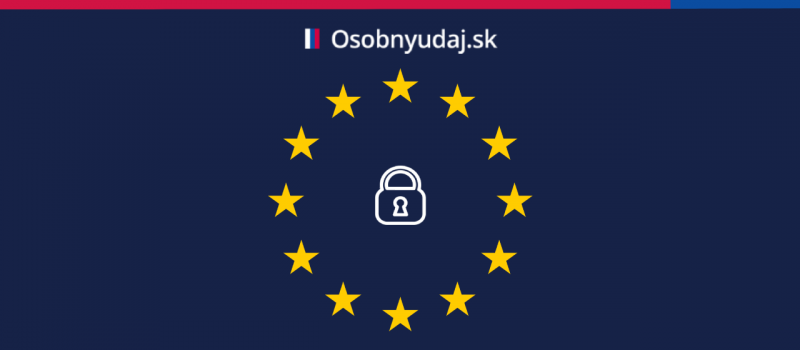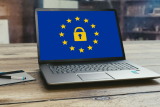What GDPR brings for cyber protection

What GDPR brings for cyber protection
The arrival of GDPR has changed not only how personal data is processed, but also how the Internet collects and manages private information. The reform through GDPR aims to give European Union citizens more control over the security of their personal data. What does this mean for the future of cyber security?
Data collection and storage is limited
As GDPR seeks to increase privacy in the area of personal data, it puts pressure on websites to tighten computer security and even incorporate new practices. This means achieving a high degree of specificity based on what qualifies as consent.
Assuming that anyone who has visited the website has given you access to your personal information for marketing purposes, you must obtain permission for their data through a positive action and unambiguous consent that is prominently displayed on the website. In addition, data processing must be systematically monitored and a public breach of this sensitive material must be reported within 72 hours of the breach.
Standard firewall technologies are not enough
In this electronically interconnected world, the Internet is now available with support for all kinds of office equipment, from computers and printers to alarm systems for mobile devices. This increases the potential for jeopardizing even the most secure networks, so in response, preventive measures need to become more sophisticated. Firewall protection is convenient, but this software is no longer sufficient. A multi-purpose approach to cyber security is more efficient. Select technologies that encrypt unstructured data, automate all manual processes, condense storage in one place, and enhance the security of managed file transfers.
Network access endpoints must be integrated
Because multiple connected devices can increase the risk of personal data misuse, all network access endpoints must have one consolidated dashboard. This simplifies data management at different endpoints, enhances the visibility of the entire endpoint network so internal IT teams can oversee and protect the data flow. Thus, they check which can move across the endpoint to minimize any threats of remote access and optimize detection and response to suspicious activities. In addition, merging these network endpoints will create a thorough and secure checkpoint to ensure that you remain accountable to all GDPR compliance directives.
Security risks should be assessed and reported
Data leaks can occur at any stage of the supply chain, so it is important to conduct routine checks on all aspects of this framework, including website traffic and social media interaction. This identifies the areas most vulnerable to security breaches, so that proper measures can be taken to reduce the likelihood of data leakage. A thorough risk assessment also assesses how effectively network access software works to mitigate the spread of viruses, malware and other external factors that contribute to data loss or theft.
Within GDPR, data protection is spread between two different levels - controller and processor. A business owner or manager who gets personal information from customers and who then decides how data is used is the controller. The staff responsible for the implementation of the manager's guidelines are processors. To prevent any misuse of data, you need robust protocols to check the power balance. For this reason, more companies are hiring Data Protection Officers (DPOs) to serve as primary contact points for all data processing activities. In addition to ensuring accountability to the controller, the Data Protection Authority can train all team members in accordance with GDPR principles and ensure that these parameters are respected.
Compliance with privacy regulations is a major factor in gaining consumer confidence or compensating for loss of confidence, as was the case with the recent Cambridge Analytics scandal. GDPR will require that any use of personal data depends on accurate and unambiguous consent under the threat of enormous penalties.
Vyhľadávanie
Most read articles
Categories
Recently added articles
Popular tags
Contact form
Preparation of Security Documentation in terms of GDPR from 139€ with insurance.
- Infoline:
- E-mail:
osobnyudaj.sk, s.r.o. Námestie osloboditeľov 3/A,
040 01 Košice
Non-binding free quote
from € 139 with insurance
We have provided services
to more than
11 500 clients
Questions and answers
Dear client, if you have not found
what you are looking for, do not hesitate
to contact us.
-
What is GDPR?
-
General Data Protection Regulation (GDPR) is the acronym for Regulation…
Find out more
-
-
Who is affected by the GDPR?
-
It applies to all persons processing personal data and any…
Find out more
-
-
What changes come with the GDPR?
-
The fundamental changes of the GDPR include: compulsory appointment of…
Find out more
-
-
Who is Data Protection Officer (DPO)?
-
All organizations processing personal data must count on the appointment…
Find out more
-
-
What happens if I do not comply with GDPR?
-
In the event of a breach of the GDPR regulation,…
Find out more
-
-
How can we help you?
-
Osobnyudaj.sk, s.r.o. is the largest provider of personal data protection…
Find out more
-
-
What are advantages of working with our company?
-
personal visits throughout the Slovak Republic are a matter of…
Find out more
-
-
What is personal data?
-
For the purposes of the GDPR, all information relating to…
Find out more
-
-
Who is Data Protection Officer?
-
All organizations processing personal data must count on the appointment…
Find out more
-




